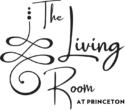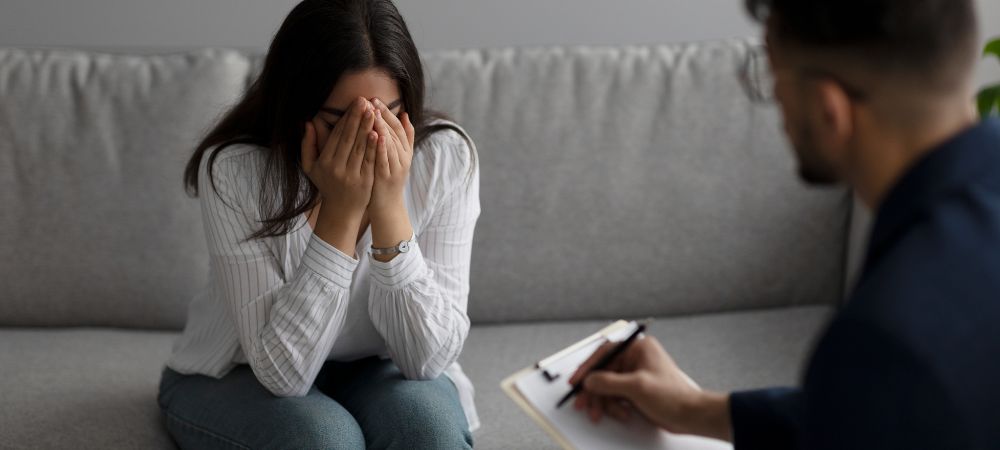People with addiction often have mental health conditions at the same time, which is known as having a co-occurring disorder. According to the Substance Abuse and Mental Health Services Administration (SAMHSA), “approximately 9.2 million adults in the United States have a co-occurring disorder.”[1]
One of the most common conditions to co-occur with addiction is depression. Depression causes people to experience prolonged feelings of sadness, low energy, and even thoughts of suicide. When someone with depression suffers from an addiction, they might abuse drugs or alcohol to cope with their symptoms.
The National Library of Medicine (NLM) reports that 16.5% of people with depression have an alcohol use disorder while 18% struggle with drug addiction.[2]
When you struggle with both depression and addiction you must seek treatment that addresses both disorders simultaneously. Thankfully, dual-diagnosis treatment centers for depression and addiction in New Jersey can offer you the tools and support you need to recover from both conditions at the same time.
How Does Dual Diagnosis Treatment for Depression and Addiction Work in New Jersey?
Dual diagnosis treatment combines traditional addiction treatment methods with clinically proven services for depressive disorders.
During these programs, you will receive a combination of individual therapy, group counseling, medication management for depression, and relapse prevention planning to ensure you achieve long-term sobriety. All of these treatment techniques will ensure you learn how to manage your depression without feeling the need to self-medicate with drugs and alcohol.
Treatment for depression and addiction in New Jersey includes:
Assessment and Diagnosis
Upon arrival at a dual diagnosis rehab center, you will undergo an initial assessment. These assessments gather information about your physical and mental health as well as your history of drug and alcohol abuse. Once this information is gathered, an individualized treatment plan can be created and if appropriate, you will receive a diagnosis for a type of depressive disorder.
One-on-One Therapy
Once your treatment plan is created, you will begin participating in individual therapy. One-on-one therapy is beneficial for both depression and addiction in a variety of ways. For example, your therapist will help you learn how to cope with your depression healthily, reducing your desire to self-medicate with substances.
Individual therapy can help you recover from addiction and depression by:
- Helping you understand the underlying issues that contributed to your substance abuse
- Giving you healthy coping mechanisms for depression that reduce your symptoms
- Teaching you how to identify triggers for addiction and overcome cravings naturally
- Providing you with an in-depth understanding of addiction, depression, and how these conditions affect your daily life
- Helping you learn how to create daily routines that make it easier to live your day-to-day life, even when your depression is flaring up
Group Counseling
Group counseling is used to treat both addiction and depression during dual diagnosis treatment in New Jersey. While individual therapy gives you a chance to be vulnerable in private with a professional therapist, group counseling allows you to talk about your struggles with peers who are experiencing similar issues.
The goals of group counseling include:
- Learning how to connect with others and communicate effectively
- Seeing that you are not alone and other people experience similar struggles with both addiction and depression
- Gaining a new perspective on your co-occurring disorders by listening to your peers’ stories
- Receiving advice from peers who have been in treatment a bit longer than you
- Learning about coping mechanisms that work for others who also struggle with addiction and depression
Medication Management
In addition to therapy, you will have the ability to try out medications that may assist in treating your depression. While medication is not right for everyone, sometimes it helps balance chemicals in your brain that are affected by depressive disorders. When you find the right medication, it can treat the symptoms of your depression that are not improving during therapy.
Common medications for depression include:[3]
- Selective serotonin reuptake inhibitors (SSRIs)
- Serotonin and norepinephrine reuptake inhibitors (SNRIs)
- Atypical antidepressants
- Tricyclic antidepressants
- Tetracyclic antidepressants
- Monoamine oxidase inhibitors (MAOIs)
Aftercare Planning
Lastly, treatment centers for depression and addiction provide comprehensive aftercare planning. Since relapses are common in early recovery, New Jersey rehab centers help you make an aftercare plan to prevent relapse and support long-term recovery.
Aftercare may involve:
- A list of triggers for substance abuse that is personal to you
- Coping mechanisms that you have tried and had success with during treatment
- A weekly schedule that includes therapy and attending recovery support groups like 12-step meetings
- Attendance of an alumni support group
- A list of people you can call for support during times of need
- Self-care techniques like making time for hobbies you enjoy daily
Find Treatment for Depression and Addiction in New Jersey
If you or a loved one suffers from co-occurring addiction and depression, a dual-diagnosis rehab center in New Jersey can help you recover. At The Living Room at Princeton, we understand the importance of recovering from both conditions at the same time, which is why we include clinically proven services for both addiction and depression in our treatment programs. Our clients develop coping strategies to manage symptoms of both disorders, building resilience for the future By addressing both aspects of the dual diagnosis, individuals have a higher likelihood of maintaining sobriety and improving mental health.
To learn more about our treatment program for depression and addiction in New Jersey, contact us today.
References:
- The Substance Abuse and Mental Health Services Administration (SAMHSA): Co-Occurring Disorders and Other Health Conditions, Retrieved December 2023 From https://www.samhsa.gov/medications-substance-use-disorders/medications-counseling-related-conditions/co-occurring-disorders
- The National Library of Medicine (NLM): Mood Disorders and Substance Use Disorder: A Complex Comorbidity, Retrieved December 2023 From https://www.ncbi.nlm.nih.gov/pmc/articles/PMC2851027/
- The National Library of Medicine (NLM): Commonly prescribed antidepressants and how they work, Retrieved December 2023 From https://magazine.medlineplus.gov/article/commonly-prescribed-antidepressants-and-how-they-work


